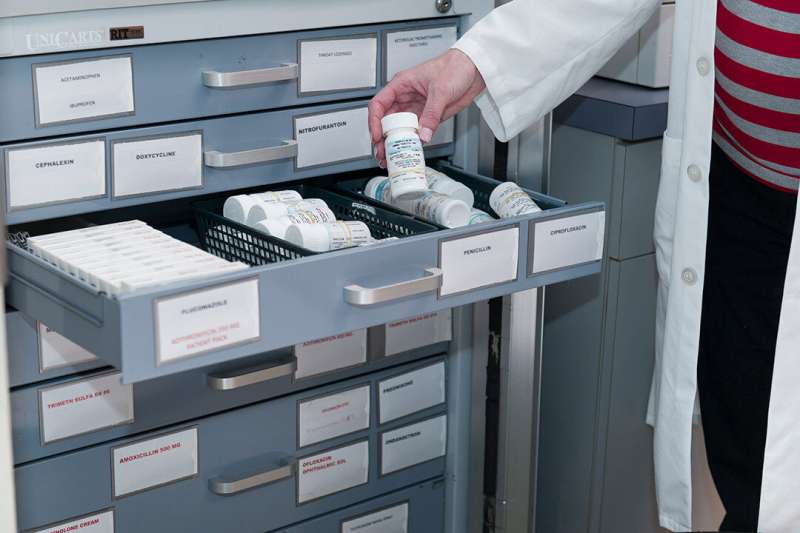This article has been reviewed according to Science X's editorial process and policies. Editors have highlighted the following attributes while ensuring the content's credibility:
fact-checked
trusted source
proofread
Researcher develops math models to help predict patients' medication adherence

When it comes to medication adherence for patients, a detailed mathematical analysis from a Rochester Institute of Technology scientist has found that history is likely to repeat itself. In a new study published in the Journal of Managed Care & Specialty Pharmacy, Teresa Gibson, a professor of practice at RIT's School of Mathematical Sciences, showed that an individual's prior adherence behavior is an important predictor of future adherence.
Ensuring that patients take medications as prescribed can be crucial for maintaining and improving their health, so doctors, pharmacists, insurers, and public health officials all have an interest in better predicting whether patients will or will not follow medication guidelines. Gibson used mathematical models to analyze the adherence behaviors of more than 53,000 people enrolled in employer-sponsored health plans who filled prescriptions in three maintenance medication classes: lipid-lowering medications, antihypertensive medications, and oral antidiabetic medications.
"The goal was to quantify if a patient filled their prescription last quarter, the likelihood they will fill it this quarter," said Gibson. "It turns out both adherence and non-adherence are very sticky behaviors, and a lot of it has to do with habit formation. If you know a person is adherent, it's likely they're likely to stay that way. If they're not adherent, you know you need to put in some real work to get them to that state."
The study found that if an enrollee had been adherent in the previous quarter, more than 80 percent of the time they remained adherent in the current quarter. If they had been non-adherent in the previous quarter, more than 75 percent of the time they remained non-adherent. Gibson also found, using an otherwise unremarkable quarter early in the study, that if a patient was adherent or non-adherent in that quarter it was highly predictive of their future adherence patterns.
Gibson said the results show that interventions that move patients to adherence at any time in their treatment pathway could net better adherence in the future.
More information: Teresa B Gibson, A dynamic analysis of medication adherence, Journal of Managed Care & Specialty Pharmacy (2022). DOI: 10.18553/jmcp.2022.28.12.1392

















